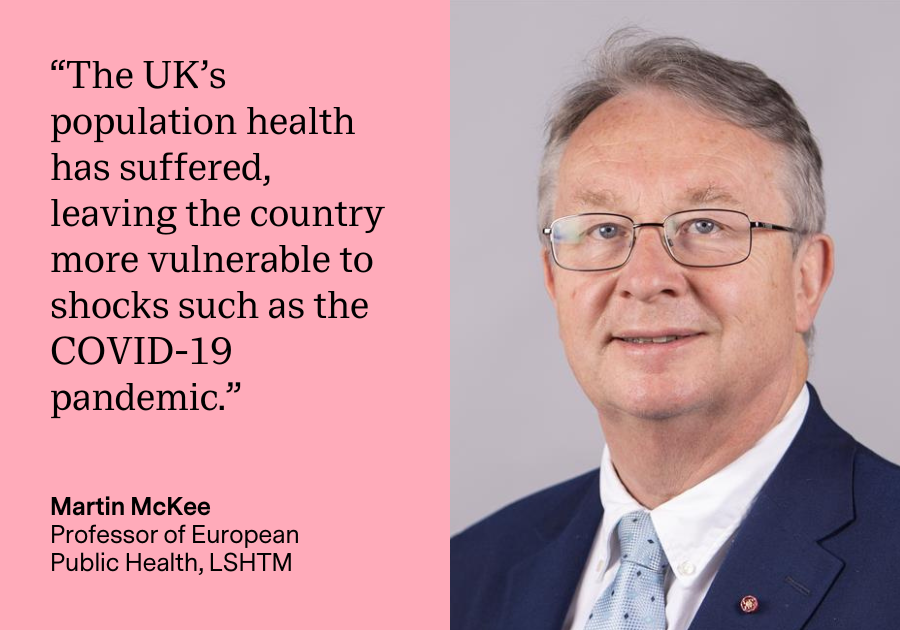Expert Comment – UK falls behind Europe in life expectancy improvements
19 February 2025 London School of Hygiene & Tropical Medicine London School of Hygiene & Tropical Medicine https://lshtm.ac.uk/themes/custom/lshtm/images/lshtm-logo-black.png
"The UK’s population health has suffered, leaving the country more vulnerable to shocks such as the COVID-19 pandemic.” Martin McKee, Professor of European Public Health, LSHTM
A new analysis published in the Lancet Public Health reveals that the UK experienced some of the slowest improvements in life expectancy across Europe between 2011 and 2021.
The study, conducted by over 200 researchers including from the London School of Hygiene & Tropical Medicine (LSHTM), compares changes in life expectancy, causes of death, and disease risk across 16 European Economic Area (EEA) countries and the four UK nations.
Life expectancy across Europe had been steadily increasing for decades, but progress has stalled since 2011. This study finds that countries with the smallest gains in life expectancy from 2011 to 2019 went on to suffer some of the largest declines between 2019 to 2021, largely due to the COVID-19 pandemic. While the pandemic lowered life expectancy in nearly all European countries, these findings suggest that countries with stronger population health were more resilient to its effects.
Economic and policy decisions appear to have played a significant role in these trends. Countries that implemented austerity measures over the past 30 years had higher mortality rates, highlighting the long-term impact of reduced investment in public services.
In the UK, researchers have long warned that stagnating life expectancy signals various underlying economic and social challenges. Between 1997 and 2010, increased NHS funding contributed to a reduction in health inequalities, but subsequent cuts have undermined this progress. Factors such as housing, food insecurity, and unemployment – key social determinants of health – have all been affected, contributing to slower improvements in life expectancy.
Professor Martin McKee, a co-author on the study from LSHTM, said:
“This study puts the UK’s relative decline in life expectancy into stark contrast with its European neighbours. This is a trend that has been building for decades, with large cuts to health, social care and welfare since 2010 hitting the poorest communities the hardest. As a result, the UK’s population health has suffered, leaving the country more vulnerable to shocks such as the COVID-19 pandemic.
“A renewed focus on tackling health inequalities and investing in public services, particularly for the most socio-economically deprived and marginalised groups, will be critical to reversing this trend.”
The findings also point to stalled progress in reducing deaths from major causes such as cardiovascular disease and cancer, due to changes in incidence of common risk factors like high BMI and poor diet.
If you enjoyed this article and would like to build a career in global health, we offer a range of MSc programmes covering health and data, infectious and tropical diseases, population health, and public health and policy.
Available on campus or online, including flexible study that works around your work and home life, be part of a global community at the UK's no.1 public health university.